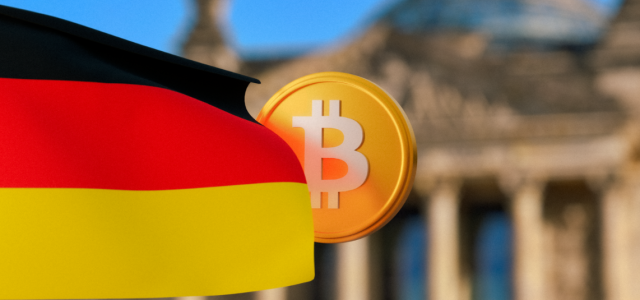In order to provide another frontier for investment, Germany has allowed so-called “spezialfonds”, simply translated as special funds, to invest 20% of its holdings in buying Bitcoin and other cryptocurrency assets through a new law that has now come into effect.
By allowing Spezialfonds (institutional investors) to invest in crypto, underlining a major positive shift in global market perception Germany is now taking the lead in crypto investments.
Post Contents
What Is Spezialfonds?
Spezialfonds are German wealth and institutional investment fund managers like banks, insurance companies, pension funds, and corporate funds, which currently manage a combined $2.1 trillion in total assets under management (AUM).
More than $415 billion is now legally accessible to be moved into various crypto projects around the world. This move will also help upcoming crypto projects to get funding, but it is important to note that institutional players move slowly, and it might take years before the market sees the true impact of this move.
Another Tori4Town: Crypto ATMs Now Thriving Globally
Speaking on this development, Tim Kreutzmann, an expert on crypto-assets at BVI, the German Investment Funds Association, said that even though the government allowed the funds to invest, most funds will initially stay well below the 20% mark.
Globally, governments are very slow in accepting crypto as assets, as valuations are highly volatile and dominated by few investors, while regulation is still in a grey zone.
However, the new law marks the beginning of the crypto asset class entry into the mainstream of major institutional funds, especially concerning insurance and pension funds, which manage huge amounts of money but are often adamant to adopt new technologies when it comes to their long-term investment strategies.
Kreutzmann also said that there would be a balance of investment. On one hand, institutional investors have strict regulatory requirements and on the other hand, they will surely choose to invest part of their portfolios in crypto, which is still attempting to attain regulatory clarity as an industry in most jurisdictions around the world.
In Germany, Investors Are Conservative
It will however be difficult for crypto projects to attract investments from funds in Germany, as investors are known to be conservative in nature, a financial services adviser at Oliver Wyman LLC, a management consultancy firm commented.
The adviser expects funds to experiment with cryptocurrencies at a low level initially, with most of them not getting close to the threshold for at least five years.
Deutsche Bank AG’s asset manager DWS group representative emphasized that they are monitoring developments around cryptocurrencies, but is not currently planning to offer any funds that buy crypto to their clients.
Germany’s leading asset managers, DekaBank spokeswoman said they are considering investing in digital currencies but no decision has been made yet.
German Funds Are Not The First
Germany’s institutional funds are not the first to invest in the crypto space. One of New Zealand’s leading superannuation funds, KiwiSaver Growth Strategy Fund with $244 million in total assets, has invested 5% of its total fund value in acquiring Bitcoin way back in October 2020.
Norwegian Government Pension Fund also holds Bitcoin through Microstrategy, which currently owns over 90,000 Bitcoins. Another Norwegian firm, Aker ASA, an industrial holding company with ownership throughout the oil and gas industry, has created a unit dedicated to investing in Bitcoin.
With the increased adoption of Bitcoin and crypto increasing, endowments at Harvard, Yale, University of Michigan, Brown, Harvard, Stanford, Dartmouth College, Massachusetts Institute of Technology (MIT), and the University of North Carolina have invested in crypto funds. The endowment fund of Duke University made an early investment in popular cryptocurrency exchange Coinbase.
Institutional Investors Globally Want To Invest
Large institutions, which include private banks, hedge funds and global fund managers, are getting increasingly enticed to take a plunge in acquiring crypto assets.
According to a Fidelity Digital Assets survey, seven out of ten institutional investors expect to invest in or buy digital assets in the future, even though price volatility is the main barrier for new entrants.
Due to investment push from family offices, institutions like Goldman Sachs, Blackrock, Morgan Stanley, Bank of New York Mellon, JPMorgan and State Street have officially entered the digital assets space.
Goldman Sachs has applied for a new Bitcoin-related investment product, while BlackRock, the world’s largest asset manager with more than $8 trillion under management, began trading Bitcoin futures.
Meanwhile, Morgan Stanley has become the first big US bank to offer clients access to Bitcoin funds and BNY Mellon has launched a digital assets unit for a Bitcoin ETF in Canada, with plans to expand the offering to the US.
The decision by Germany has opened a new avenue for other countries to allow investment in crypto projects by major institutional players.
Many nations are already mulling to allow traditional investor funds to invest in digital assets, however, as the crypto market is still growing, it will likely take time for other nations to join the bandwagon that Germany has now boarded. But one thing is certain, we’re moving in the right direction.

